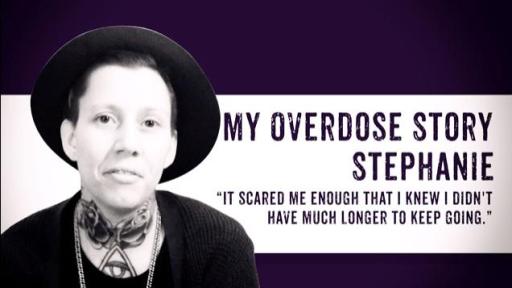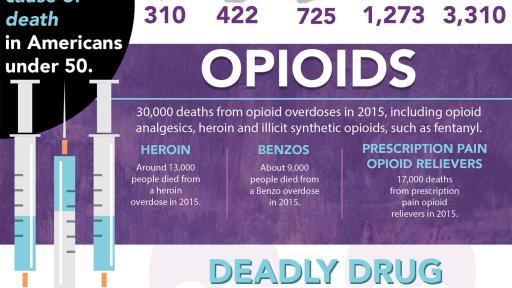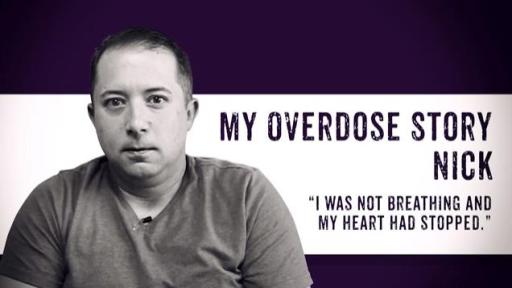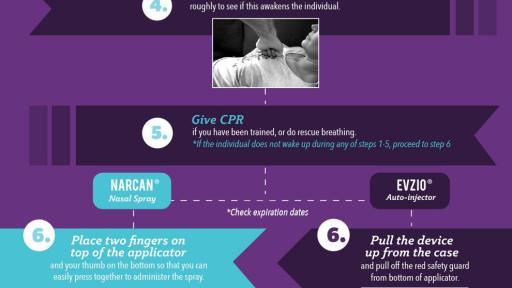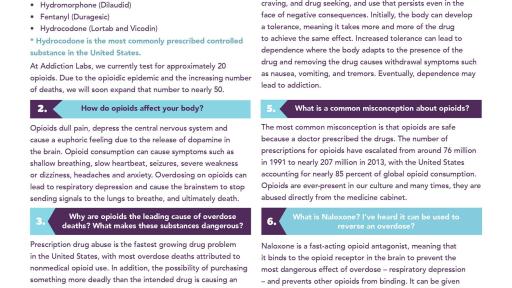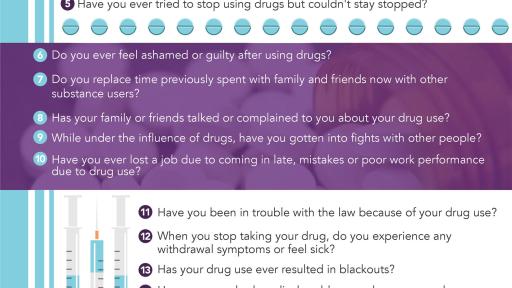Revived from an Opioid Overdose: Three Life-Saving Lessons From Survivors
American Addiction Centers and Recovery Brands sponsor an opioid overdose awareness campaign to educate the public why people can’t afford to go another day using drugs
NASHVILLE, Tenn. (Aug. 15, 2017) — Each day in the U.S. 91 people die from an opioid-related overdose, and the numbers are increasing. In observance of International Overdose Awareness Day on August 31, American Addiction Centers (AAC) and Recovery Brands are launching a nationwide awareness campaign on how to prevent deaths from opioid overdoses. The campaign features shareable online resources, including an animation video about how an overdose impacts a body, an infographic about how to administer overdose medication, and powerful videos of survivors sharing the life-saving lessons they learned during their darkest hours.
“This is a meaningful endeavor as we partner with our parent company, AAC, in order to present several life-saving resources for people impacted by addiction,” said Ruchi Dhami, director of market insights and development at Recovery Brands, a provider of digital addiction treatment resources. “Since such a large amount of individuals look for information online about addiction and treatment, we wanted to ensure comprehensive education surrounding opioid overdoses existed and is easily accessible for individuals and families impacted by addiction.”
Dr. Mark Calarco, chief medical officer of American Addiction Centers, says that, “We know there is hope in the midst of the national opioid epidemic. Overdoses are preventable. The more we can educate people about the disease of addiction, the more lives we can save.”
Saving lives is also the reason Stephanie Maitner and Nick Zimmer agreed to publicly share their stories as part of the campaign. Three life-saving lessons from their testimonies include:
#1 Lower Tolerance - After a person has gone some time without using, they are more likely to overdose due to much lower tolerance. Additionally, it is often unclear what drugs from street dealers contain.
“I had a higher habit than what I had actually overdosed on,” said Maitner, who’s four and a half years in recovery. “At that point, I was using six to seven bags of heroin at a time. And I had only done two at that point. And when I woke up, I came to find out that I had passed out, I was blue.”
Zimmer, remembering his first overdose, said, “From other people’s experience I knew that a lot of people would leave treatment, use again, use the same amount as before, and then overdose. So, I used about a quarter of the amount I normally used, and I still overdosed.”
Once people go through treatment, using again presents an even greater danger of overdose, according to Dr. Calarco. “Someone who is detoxed has lost their tolerance. So if they relapse and take the same dose of drug that they used before treatment, they can easily overdose. Also, people who think they are taking heroin may actually be taking a synthetic opioid like fentanyl and carfentanil (an elephant tranquilizer 10,000 times stronger than morphine), leading to sudden death.”
#2 - Recognize Warning Signs - Familiarizing yourself with the warning signs of an overdose can potentially save a life.
“The girl that was with me had to do CPR,” said Maitner.
During the animation video produced for the campaign, Calarco details what happens to the body during an overdose.
“The key to surviving an overdose is to respond quickly before they stop breathing. With no oxygen getting into the body, the heart goes into an irregular rhythm and eventually cardiac arrest. If not treated quickly, brain damage ensues and the person will die,” said Calarco. “Call 911 and give CPR if trained. If naloxone is available, administer the recommended dose and repeat as directed.”
#3 - Addiction is a Brain Disease - A near-death experience is not always enough to stop an individual from using again. However, supporting those struggling with an opioid addiction is critical for their survival, and, ultimately, long-term recovery.
Even though Zimmer had to be revived after his first overdose, he still used again only months later.
“I died that time [second overdose] from what the EMTs told me,” said Zimmer. “I was not breathing and my heart had stopped.”
Calarco said the brain of someone suffering with addiction is markedly different from someone who doesn’t.
“Opioids affect decision-making processes on a cellular level,” said Calarco. “Despite knowing that opioids are harmful, their brain has been so physically altered that they cannot resist even if they wanted to. They need help and support to get on the path to recovery.”
Unfortunately, only one in 10 individuals who need treatment for substance abuse actually seek it. Next to cost, stigma associated with addiction is the second largest barrier for individuals to consider treatment, according to Recovery Brands’ research.
Zimmer and Maitner hope their stories empower others to speak up and get help.
“I feel like there’s a reason I survived everything I did, and if one person reaches out to get help from hearing about my experience then opening up to tell my story is always worth it,” said Maitner. “It’s so important for people to understand how easy it is to overdose, especially for people who relapse with a decreased tolerance. Spreading this message is matter of life or death.”
If you or a loved one struggle with addiction call the AAC helpline at 800-822-9187 or visit Recovery.org to learn about your treatment options.
About American Addiction Centers
American Addiction Centers (NYSE: AAC) is a leading provider of inpatient and outpatient substance abuse treatment services. We treat clients who are struggling with drug addiction, alcohol addiction, and co-occurring mental/behavioral health issues. We currently operate substance abuse treatment facilities located throughout the United States. These facilities are focused on delivering effective clinical care and treatment solutions. For more information, please find us at AmericanAddictionCenters.org or follow us on Twitter @AAC_Tweet.
About Recovery Brands
Recovery Brands, LLC owns and operates leading addiction treatment websites, providing resources to millions of people struggling with addiction to help facilitate informed decisions about treatment options and facilities. Its portfolio of authority websites, including Rehabs.com and Recovery.org, provides online directories, rehab reviews, forums and professional communities that have supported countless families in their decisions to pursue recovery. Treatment providers leverage its marketing platform to elevate their online brands through paid media packages across its network. Recovery Brands is now operating as part of Sober Media Group, LLC, a digital media arm of American Addiction Centers.
Media Contacts:
Joy Sutton
PR Manager, American Addiction Centers
(615) 587-7728
[email protected]
Shelby Ray
Senior PR Specialist, Recovery Brands
(858) 461-9165
[email protected]



